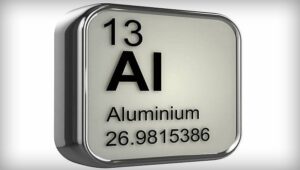
The volume of passenger car imports to Ukraine, including cargo-passenger vans and racing cars (UKT ZED code 8703), in January-October 2025 amounted to almost $4.82 billion, which is 32.6% more than in the same period of 2024 ($3.63 billion) and 10% more than in the whole of 2024.
According to statistics released by the State Customs Service of Ukraine, the growth rate of passenger car imports has thus accelerated, reaching 27.4% in the first nine months of the year compared to the same period in 2024.
In October this year, passenger cars worth $647.8 million were imported into Ukraine, which is 81% more than in October last year.
The top three suppliers of cars to Ukraine in January-October this year were Germany, the US, and China, while last year they were the US, Germany, and Japan. In particular, car deliveries from Germany increased by 52% to $841.3 million, and their share in the structure of car imports was 17.45% compared to 15.23% a year earlier.
Cars worth $839.7 million (25.4% more) were imported from the US to Ukraine, and $663 million (13.8% of passenger car imports) from China. Last year, imports from Japan, which was among the top three leaders, amounted to almost $430 million (11.8%).
Imports of passenger cars from other countries during the period amounted to $2.476 billion, compared to $1.981 billion in January-October 2024.
At the same time, in the first 10 months of this year, Ukraine exported only $7.17 million worth of such vehicles, in particular to the UAE, Canada, and the US, while a year ago, during the same period, the country supplied $9.33 million worth of such vehicles to foreign markets, mainly to Canada, Germany, and the US.
According to the State Customs Service, in the overall structure of imports of goods to Ukraine in January-October 2025, the share of passenger cars was 7.1% (6.3% last year), and in the structure of exports – 0.02% (0.03%).
As reported, in 2024, passenger cars worth $4.385 billion were imported into Ukraine, which is 8% more than a year earlier, and $10.1 million worth were exported (2.7 times less).

In January-October 2025, Ukraine increased imports of aluminum and aluminum products by 14.8% to $432.08 million, while exports grew by 21.4% to $128.14 million.
In October, aluminum imports amounted to $42.85 million, and exports amounted to $15.71 million.
For comparison, in 2024, aluminum imports increased by 21.7% to $446 million, and in 2023, by 7.7% to $366 million.
Aluminum is widely used as a structural material. The main advantages of aluminum are its lightness, malleability, corrosion resistance, high thermal conductivity, and the non-toxicity of its compounds.
In particular, these properties have made aluminum extremely popular in the production of kitchenware, aluminum foil in the food industry, and for packaging. The first three properties have made aluminum the main raw material in the aviation and aerospace industries (recently, it has been replaced by composite materials, primarily carbon fiber). After construction and packaging production—aluminum cans and foil—the largest consumer of metal is the energy industry.

The Cabinet of Ministers of Ukraine has included the Korosten-Podilsky project, with a total area of 78.0236 hectares in the city of Korosten, in the Register of Industrial Parks. The project was initiated by the city council, according to the Ministry of Economy. According to the concept, the park will house woodworking, textile, metal products, and machine-building enterprises, as well as other non-metallic mineral products, machinery and equipment, concrete products, bricks, construction mixtures, and the development of activities in the field of information and electronic communications.
The creation of the park is expected to provide 2,300–4,000 new jobs in the manufacturing industry. To attract investment, the Korosten City Council adopted a Comprehensive Community Economic Development Program for 2025–2027. The program provides for the promotion of the functioning and development of industrial parks in the amount of UAH 150 million and the development of design and estimate documentation for the park’s engineering and transport infrastructure in the amount of UAH 2.5 million.
The term for the creation of the park is 30 years. The decision was adopted on the evening of November 13. Taking this decision into account, there are 109 industrial parks in the Register.
CABINET OF MINISTERS, INDUSTRIAL PARK, Korosten-Podilskyi, REGISTER

The Cabinet of Ministers of Ukraine has included the 21.61-hectare NEXUS Odessa project in the Nerubayskaya territorial community of the Odessa region in the Register of Industrial Parks, according to the Ministry of Economy. The initiators of the project are Ecosstandard Service LLC, owned by businessman Lev Partskhaladze and Georgiy Tsagareishvili.
The park will focus on the production of food and beverages, machinery and equipment, metal structures and products for construction, building materials, and projects in the field of alternative energy. It is planned to create about 1,000 jobs.
The project involves attracting more than UAH 747.7 million from various sources: own investments, funds from the management company, state incentives, private financing, and contributions from future participants. The initiator has allocated about UAH 60 million of its own funds for the initial stage in 2025–2028.
Ekostandart Service LLC was registered in December 2014 with a statutory capital of UAH 12.66 million. Its main activities are the collection, processing, disposal, and recovery of safe waste. The ultimate beneficiaries are Lev Partskhaladze and Georgiy Tsagareishvili.
The term of the park’s creation is 30 years. The decision was made on November 13. Taking into account new projects, there are 109 objects in the Register of Industrial Parks.

Trade Union of workers of education and science of Ukraine believes that the proposed increase in teaching load threatens to dismiss more than 70 thousand teachers.
“The Committee on education, science and innovation of the Verkhovna Rada decided to amend the law on the state budget of Ukraine to the laws ”On education“, ”On full general secondary education“, ”On vocational pre-university education“, ”On vocational education”. The norm of a teacher’s teaching load has been increased from 18 to 22 hours per week, which threatens to reduce by 22.2% the rates of teachers and, as a consequence, – dismissal of more than 70 thousand teachers”, – the trade union said in a statement.
It is noted that the changes are also proposed, which will lead to a reduction in seniority bonuses for those teaching staff with a teaching experience of 10 to 20 years, as well as deprive the right to seniority bonuses for teaching staff with a record of 5 to 6 years.
In addition, it is proposed to cancel the increase in wage rates for the pedagogical titles of “teacher-methodist”, “senior teacher”, “senior tutor”, “tutor-methodist” and other pedagogical titles assigned to pedagogical workers who ensure the educational process at a high professional level.
Among other things, the trade union draws attention to the fact that the Committee considers it necessary to introduce a 36-hour working time for teachers, circle leaders, as well as for all other teaching staff of the institution of general secondary education.
“The above decision of the Committee on Education and Science of the Verkhovna Rada does not comply with Article 22 of the Constitution of Ukraine, according to which the adoption of new laws or amendments to existing laws is not allowed to narrow the content and scope of existing rights and freedoms”, – says the statement.
In connection with the above, the Trade Union of Workers of Education and Science of Ukraine calls on the head of the Education Committee, people’s deputies to withdraw from the Committee on Budget the above proposals, which concern the narrowing of labor rights of teaching staff.
“We express a categorical protest to the proposals proposed in the conclusion of the Committee on amendments to the draft law ”On the state budget of Ukraine for 2026“ for the second reading and call on the people’s deputies of Ukraine, the head of the Verkhovna Rada of Ukraine, heads and members of the Committees on budget, finance, tax and customs policy in the adoption of the law in the second reading to prevent the adoption of these illegal changes that will lead to the violation of labor rights of teaching staff of educational institutions,” – said in a statement.
As reported, the educational ombudsman Nadezhda Leshchik considers it necessary to start a dialog between teachers and the authorities in Ukraine on whether to increase the pedagogical load of teachers on the condition of an increase in salary.

Imports of electric batteries and separators to Ukraine in January-October 2025 increased by 53.4% year-on-year to $1.060 billion, according to the State Customs Service.
The largest suppliers were China with $740.6 million (70.2%), Vietnam with $96.2 million (9%), and Taiwan with $53.8 million (5%). In 2024, China (82%), Bulgaria (3.1%), and the Czech Republic (3%) were the leaders.
In October 2025, battery imports amounted to $144.9 million, which is 13.2% higher than in October 2024. Exports for ten months amounted to $43.9 million, with the main destinations being Poland (33%), Germany (12.9%), and France (11.9%). In 2024, exports amounted to $34.1 million, of which almost 30% went to Poland, 14.7% to France, and 11% to Germany.
Context. Since the end of July 2024, battery imports have been exempt from customs duties and VAT. By the end of 2024, imports of these products had more than doubled to $950.6 million.
Source: https://expertsclub.eu/ukrayina-zbilshyla-import-akumulyatoriv-na-53-za-desyat-misyacziv/